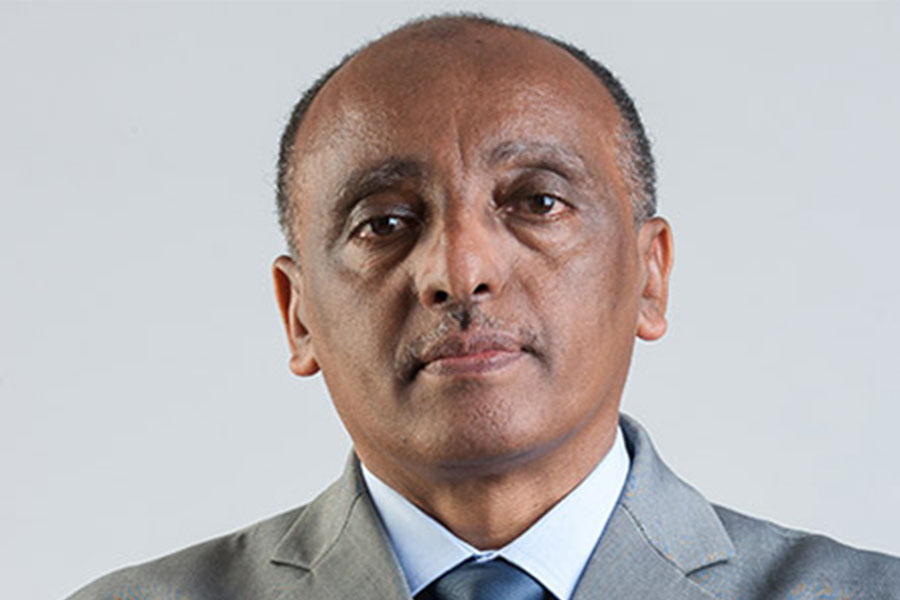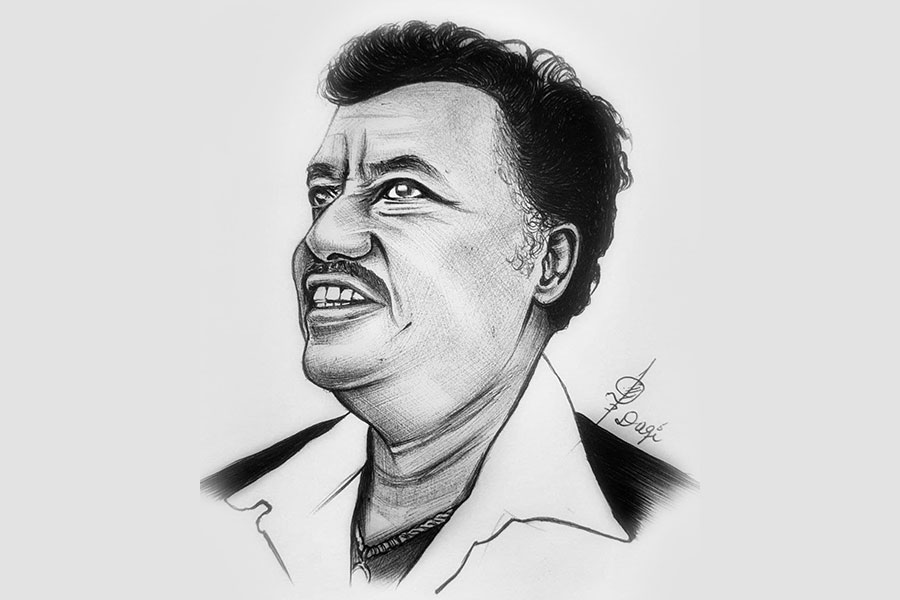
Radar | Dec 24,2022
Feb 17 , 2024
By Dereje Wordofa (PhD)
In a striking call to action, a report commissioned by the African Union (AU) has unveiled a distressing reality. No less than 35 million children in Africa, bereft of parental care, are being systematically overlooked by national child protection policies. This revelation, stemming from a comprehensive study conducted by a Committee of Experts on the Rights & Welfare of the Child, serves as a powerful reminder of the urgent need for African leaders to reconsider their approach to child welfare and protection.
Africa, a continent on the brink of a demographic boom with half of its population under 18, is at a critical juncture. The United Nations Children's Fund (UNICEF) projects that the continent's child population could reach one billion by 2055, positioning it as the largest child demographic home globally.
This demographic trend presents an unparalleled opportunity for growth and transformation, contingent on the ability of states and governments to implement comprehensive measures to care for and protect all children. The realisation of this demographic dividend hinges on a paradigm shift towards investing in the welfare of the youngest members of society, especially those in precarious situations such as the absence of parental care.
The findings of the study, which spanned over two years beginning in 2020 and included data from more than 43 African countries, paint a grim picture of the current state of child protection across the continent. It found that children without parental care — those separated from their families due to various crises, including conflict, disease, and poverty — are particularly vulnerable to a range of violent acts, including neglect, street violence, sexual abuse, forced labour, and trafficking.
These children, invisible in national data and consequently in policymaking processes, are deprived of essential services and protections that could significantly alter their life trajectories for the better. The repercussions of such neglect extend beyond the individual lives of these children, posing broader socio-economic and developmental challenges to communities and nations at large.
The study also reveals a disconcerting reality that more than 70pc of countries across various regions in Africa lack explicit and comprehensive child protection policy frameworks and guidance. This gap signifies a substantial oversight in the protection and care provisions for children without parental care, indicating a pressing need for policy reform across the continent.
The report serves not only as a baseline for understanding the current state of children without parental care but also as a call to action for governments, policymakers, and organisations to prioritise the inclusion of these children in their data-collection efforts and policymaking processes. A multifaceted approach is necessary.
By making these children visible in national data, specific needs can be identified, and targeted policies and programs can be developed to address those needs effectively. This can be achieved through the inclusion of relevant questions in surveys, census forms, and administrative databases. Encouraging collaboration among government agencies, non-profit organisations, and academic institutions is essential for gathering and analysing data on children without parents or at risk of losing parental care. Such collaborative efforts can lead to a more comprehensive understanding of the issue, inform decision-making, and promote the effective implementation of policies and programs.
With accurate data as a foundation, policymakers can then design and implement targeted interventions that cater to the unique needs of these children. Raising awareness among the public, policymakers, and stakeholders about the systemic challenges children without parental care face is also crucial for mobilising support and drawing attention to their cause. Establishing robust monitoring and evaluation mechanisms is necessary to ensure that the policies and programs implemented are effective in improving the lives of these children.
It is incumbent upon African heads of state and their governments to heed the findings of the report and take decisive action to protect all children, especially those living under vulnerable conditions. The responsibility to implement child protection policies and create a nurturing environment for every child lies squarely with the leaders of the continent. The evidence presented by the report provides a clear mandate for action, highlighting the need for a collaborative effort among all stakeholders to address the challenges faced by the children who have lost parental care.
A meaningful paradigm shift is required in how African countries conceptualise, invest in, and implement strategies to address the needs of children without parental care. By embracing a holistic approach that respects and understands each child's unique needs, African countries can promote an environment where every child has the opportunity to thrive. The implementation of comprehensive child protection policies, informed by accurate data and grounded in collaboration, is essential for achieving the "Africa We Want" - a continent where the rights and welfare of all children are upheld, and their potential is fully realised.
PUBLISHED ON
Feb 17,2024 [ VOL
24 , NO
1242]


Radar | Dec 24,2022

Viewpoints | May 11,2023

Obituary | Sep 10,2021

Sunday with Eden | Jul 18,2021

Life Matters | Oct 05,2024

Radar | Aug 21,2021

Fortune News | May 13,2023

Editorial | Dec 11,2020

Viewpoints | Jun 22,2019

Viewpoints | Jun 10,2023

My Opinion | 131981 Views | Aug 14,2021

My Opinion | 128369 Views | Aug 21,2021

My Opinion | 126307 Views | Sep 10,2021

My Opinion | 123925 Views | Aug 07,2021

Dec 22 , 2024 . By TIZITA SHEWAFERAW
Charged with transforming colossal state-owned enterprises into modern and competitiv...

Aug 18 , 2024 . By AKSAH ITALO
Although predictable Yonas Zerihun's job in the ride-hailing service is not immune to...

Jul 28 , 2024 . By TIZITA SHEWAFERAW
Unhabitual, perhaps too many, Samuel Gebreyohannes, 38, used to occasionally enjoy a couple of beers at breakfast. However, he recently swit...

Jul 13 , 2024 . By AKSAH ITALO
Investors who rely on tractors, trucks, and field vehicles for commuting, transporting commodities, and f...

Jul 5 , 2025
Six years ago, Ethiopia was the darling of international liberal commentators. A year...

Jun 28 , 2025
Meseret Damtie, the assertive auditor general, has never been shy about naming names...

Jun 21 , 2025
A well-worn adage says, “Budget is not destiny, but it is direction.” Examining t...

Jun 14 , 2025
Yet again, the Horn of Africa is bracing for trouble. A region already frayed by wars...

Jul 6 , 2025 . By BEZAWIT HULUAGER
The federal legislature gave Prime Minister Abiy Ahmed (PhD) what he wanted: a 1.9 tr...

Jul 6 , 2025 . By YITBAREK GETACHEW
In a city rising skyward at breakneck speed, a reckoning has arrived. Authorities in...

Jul 6 , 2025 . By NAHOM AYELE
A landmark directive from the Ministry of Finance signals a paradigm shift in the cou...

Jul 6 , 2025 . By NAHOM AYELE
Awash Bank has announced plans to establish a dedicated investment banking subsidiary...